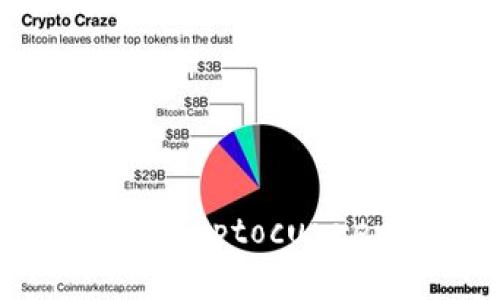Cryptocurrency has emerged as a revolutionary financial technology, capturing the attention of the world, including the United States. In recent years, the popularity of digital currencies such as Bitcoin, Ethereum, and many others has soared. The American public's views on cryptocurrency vary widely, ranging from enthusiastic advocates who see the potential for innovation and investment, to skeptics who are concerned about its volatility and regulatory issues. This article explores the multifaceted opinions of Americans on cryptocurrencies, delving into various aspects such as investment, security, regulation, and the future of digital currencies in the U.S.

The inception of Bitcoin in 2009 marked the beginning of the cryptocurrency movement, and since then, cryptocurrencies have evolved significantly. In the U.S., it has gained traction among various demographics. Initially viewed as a speculative investment, cryptocurrencies are increasingly being accepted for everyday transactions, with more businesses beginning to adopt them. Additionally, numerous cryptocurrency exchanges and platforms operating within the U.S. have facilitated easier access for investors and consumers. The evolution of cryptocurrency in America is accompanied by a dynamic conversation about its value, risks, and regulatory measures.
The American public exhibits a diverse range of sentiments regarding cryptocurrency. Various surveys and studies reveal that a significant portion of the population is enthusiastic about the potential benefits of digital currencies, including decentralized finance and blockchain technology. Many Americans view cryptocurrencies as an opportunity for financial freedom and innovation. On the other hand, the skepticism surrounding cryptocurrencies primarily arises from concerns about their volatility, the lack of regulatory oversight, and the potential for fraud. Balancing these contrasting views is crucial to understanding the broader landscape of cryptocurrency adoption in the United States.

For many Americans, investing in cryptocurrencies has become a popular alternative to traditional assets like stocks and bonds. Individuals are drawn to the potential for significant returns, especially considering the meteoric rise of Bitcoin and other altcoins. However, the speculative nature of cryptocurrencies means that investors face the possibility of substantial losses. Additionally, the inherent volatility of the market raises questions about the stability and long-term viability of cryptocurrencies as investment instruments. As more Americans dive into the crypto market, understanding the dynamics of cryptocurrency as an investment is crucial for navigating the associated risks.
One major concern among Americans regarding cryptocurrencies is security. High-profile hacks, scams, and losses highlight the vulnerabilities associated with digital assets. Many cryptocurrency exchanges and wallets have experienced breaches, leading to significant financial losses for investors. Furthermore, the irreversible nature of cryptocurrency transactions poses additional risks. Security measures, such as two-factor authentication and cold storage solutions, are pivotal for users to protect their investments. The conversation around security emphasizes the need for enhanced measures and education to ensure safe participation in the cryptocurrency ecosystem.
The regulatory approach to cryptocurrency in the United States is complex and continually evolving. Various regulatory bodies, such as the SEC and the CFTC, play vital roles in defining how cryptocurrencies are classified and governed. The lack of clear regulations has created uncertainty for investors and businesses alike, prompting calls for comprehensive frameworks that can effectively address consumer protection, anti-money laundering measures, and taxation. As the government navigates these challenges, the future regulatory landscape will significantly impact the integration of cryptocurrencies into the broader financial system.
Looking ahead, the future of cryptocurrency in the United States remains uncertain but promising. The rapid advancements in blockchain technology and increasing mainstream acceptance indicate that digital currencies may play a vital role in the future financial ecosystem. Initiatives such as Central Bank Digital Currencies (CBDCs) and increasing integration with traditional financial systems may shape how cryptocurrencies are perceived and utilized. As discussions around regulation, technology, and public opinion evolve, the trajectory of cryptocurrency adoption in America will be influenced by the collective actions of investors, businesses, and policymakers.
The general attitude toward cryptocurrencies among Americans is a mix of interest and skepticism. While many view cryptocurrencies as an innovative financial tool, there are also significant concerns about their speculative nature, safety, and regulatory status. Surveys indicate that younger demographics, particularly millennials and Gen Z, are more likely to embrace cryptocurrencies, seeing them as part of their investment strategies. In contrast, older generations tend to be more cautious. This divide in perspective illustrates the varying levels of understanding and comfort with digital currencies, further complicating the broader public discourse.
Many Americans consider cryptocurrencies a legitimate investment, particularly because of their potential for high returns. The exponential growth of Bitcoin and the emergence of numerous altcoins have attracted both retail and institutional investors. However, the conflicts surrounding regulation and the inherent risks of cryptocurrency investment create a sense of uncertainty. Investors are increasingly seeking out resources and education to better understand the market dynamics and to mitigate risks. The conversations around legitimacy are evolving, with increasing media exposure and acceptance by major financial institutions playing critical roles in shaping perceptions.
Feelings toward regulatory measures surrounding cryptocurrency in America are complex. While many argue that regulatory oversight is necessary to protect consumers and ensure the market's integrity, others believe that over-regulation could stifle innovation and limit the freedoms associated with decentralized finance. The current regulatory environment has left many feeling uncertain and exposed to potential risks. As calls for clearer regulations continue, there is hope among crypto advocates that the government will strike a balance that fosters security while encouraging growth and innovation.
Security concerns about cryptocurrencies are paramount for many Americans. The risk of hacks, scams, and fraudulent schemes poses serious challenges for users. High-profile breaches of exchanges can lead to substantial financial losses and undermine the confidence of potential investors. Additionally, the irreversibility of transactions amplifies fears about theft and loss. As awareness grows, users are educating themselves on security best practices, such as utilizing hardware wallets and employing strong authentication methods. These concerns highlight the necessity for robust security measures and ongoing education across the cryptocurrency space.
The future of cryptocurrency in America is anticipated to be dynamic and transformative. With technological advancements and increasing acceptance, digital currencies may reshape various sectors, including finance, commerce, and even governance. Potential developments in regulatory frameworks and the advent of Central Bank Digital Currencies (CBDCs) could revolutionize how Americans interact with money. Public sentiment appears to be steadily shifting toward acceptance as more people learn about the benefits and applications of cryptocurrencies. However, ongoing education, regulatory transparency, and technological security will be essential for a successful integration into the American economic landscape.
The evolving landscape of cryptocurrency views among Americans showcases a vibrant blend of excitement and caution. As this technology continues to develop, so too do the opinions surrounding it. Balancing the enthusiasm for a decentralized financial future with the necessity of security and regulation will be crucial as the U.S. navigates its cryptocurrency journey. Future trends, developments, and consumer interactions will shape the ultimate role of cryptocurrency in America, paving the way for new opportunities and challenges.
leave a reply